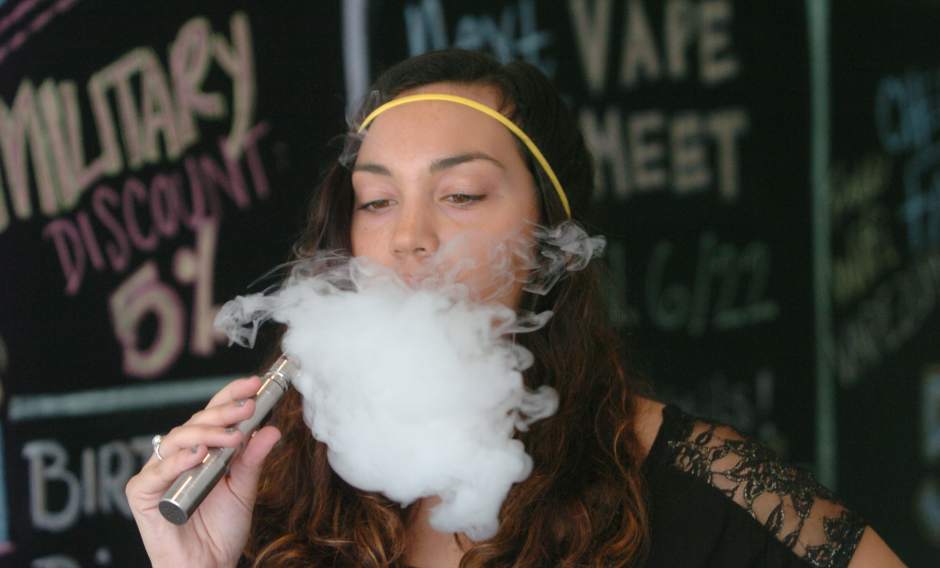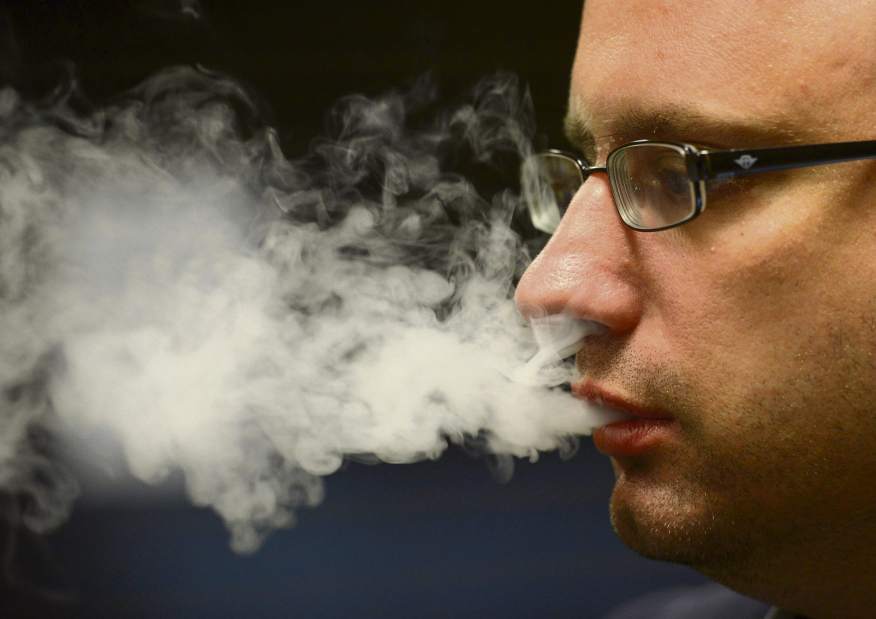FDA brings e-cigarettes under federal authority
The e-cigarette trade suffered a setback Thursday after the Food and Drug Administration unveiled a comprehensive set of tobacco rules that industry insiders say will make it too costly to remain in business.
The changes require manufacturers and owners of so-called vape shops to seek federal approval to continue marketing all e-cigarettes produced since 2007, making up the bulk of the market. Manufacturers have about two years to come into compliance.
E-cigarette users heat flavored liquids containing nicotine with battery-operated devices and inhale the vapor in a process known as vaping. The trend has increased in controversy and popularity over the past several years. Advocates insist vaping is much safer than tobacco cigarettes and view it as a way to help people quit smoking, but doctors question its safety and unregulated nature.
Public health groups and physicians praised the FDA rules as a long time coming.
“A lot of people have gotten rich off this at the expense of the American population's health,” said Dr. Anil Singh, director of the breathing disorders center at Allegheny General Hospital. “I think it is a very big victory for the medical community and people in general.”
Dr. Brian Primack, director of the University of Pittsburgh's Center for Research on Media, Technology and Health, agreed.
“Regulating this incredibly powerful drug, nicotine, is a necessary step,” he said.
Vaping advocates said the federal government is all but destroying their industry.
“This is a huge disaster for public health that is being disguised as a victory for public health,” said e-cigarette supporter Bill Godshall, executive director of Smokefree Pennsylvania. “Let's call it what it really is: the prohibition of e-cigarettes.”
The rule bans e-cigarette sales to anyone under 18, although most states already have imposed such restrictions. Pennsylvania still permits sales of e-cigarettes to minors, but most local vape shop owners refuse to sell them to teens.
In the Pittsburgh area Thursday, vape shop owners scrambled to study intricacies of the FDA rules and pondered their future.
“It's really a tough day,” said Anthony Fricchione, owner of Villain Vape Shop, which has stores in Lawrenceville, Cheswick and Butler. “We still don't know how everything will shake out and we have our attorneys reviewing the rule changes.”
R.J. Marino, who owns Cool Vapes stores in Cranberry and on McKnight Road near Ross Park Mall, said the new rule requiring manufacturers to apply for federal review will be too cost-prohibitive for small business owners.
“It's ironic because if vape shops go out of business, people may just go back to smoking regular combustible cigarettes,” he said. “Do they really want people to go back to smoking?”
Gregory Conley, president of the American Vaping Association, an industry trade group, estimated the federal application process, which includes testing e-liquids, could cost upwards of $1 million.
“This will close down thousands of small businesses and put tens of thousands of people out of work,” Conley said. “This also will create a perverse result of people having to turn to the black market to get a less hazardous alternative to a legal deadly product — cigarettes.”
Primack countered that carefully screening e-cigarettes is not tantamount to declaring them illegal.
“Of course this should be regulated like other powerful drugs,” he said. “If somebody is getting really good benefit from e-cigarettes, they will still be available. They will just hopefully be getting a product that has gone through more safety regulation testing.”
E-cigarettes sales grew to an estimated $3.5 billion in 2015, according to Wells Fargo. After ballooning over several years, sales have slowed due to negative publicity and questions about safety. Retail sales are dominated by a handful of traditional tobacco companies, including Reynold's American's Vuse and Imperial Tobacco's blu brands. Those products are sold nationwide at convenience stores and gas stations.
Hundreds of smaller companies sell more specialized products — often with refillable “tanks” and customized flavors — at vape shops and over the Internet. That space alone may be worth $2 billion in sales.
A day before the FDA announced the new regulations, the Allegheny County Board of Health voted to draft regulations restricting e-cigarette use in public indoor places, in line with Pennsylvania's Clean Indoor Air Act.
“It's quite amazing that the day after we discuss it, the FDA comes out with those rulings,” said Dr. Karen Hacker, Allegheny County Health Department director. “One of the things we discussed this week was how unregulated this industry is, so we're pleased to see the FDA take action.”
Ben Schmitt is a Tribune-Review staff writer.



